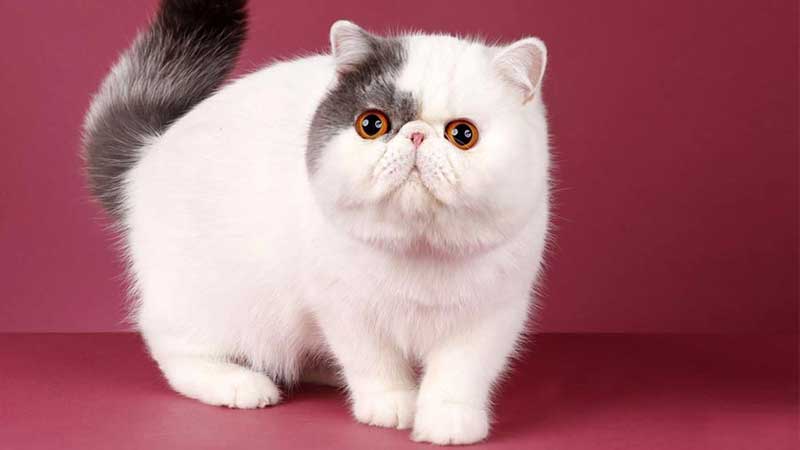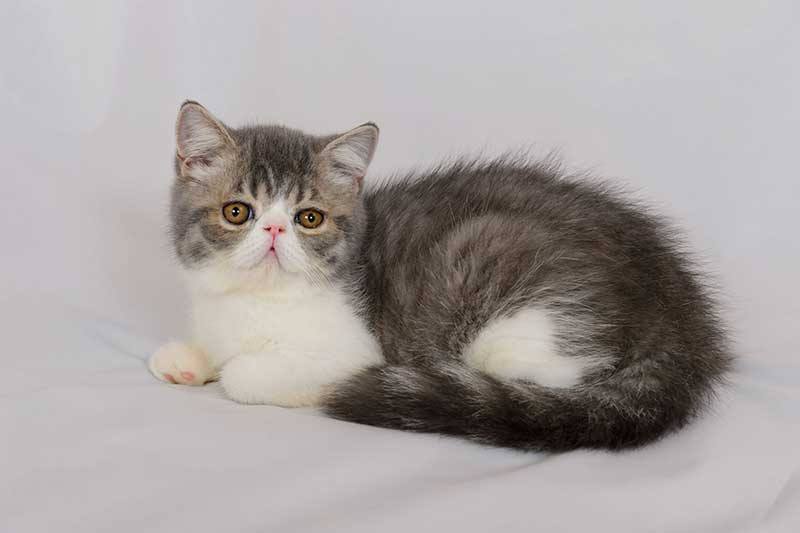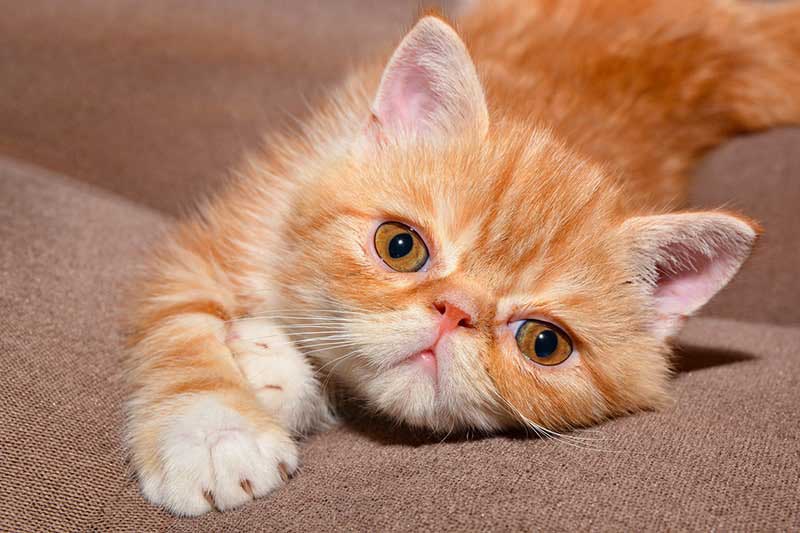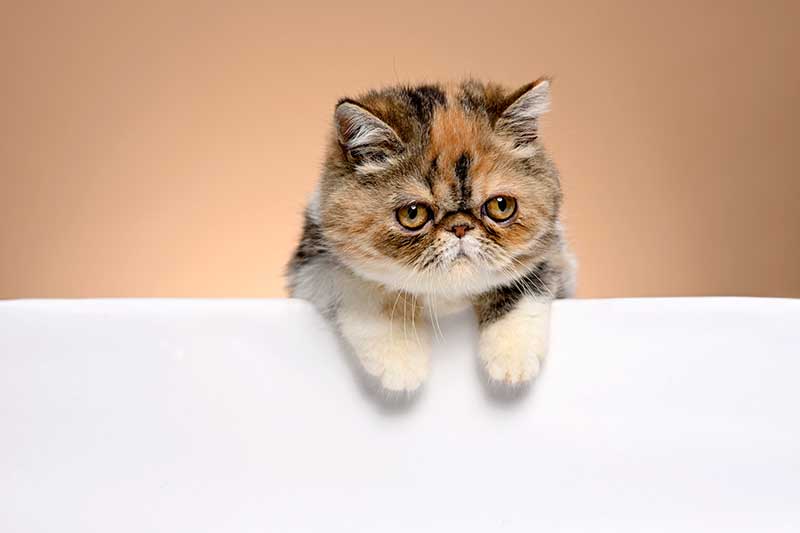Unveiling the Respiratory Problems in Exotic Shorthair Cats
Introduction
Exotic shorthair cats have gained immense popularity due to their charming appearance and sweet temperament. These cats are known for their adorable flat faces, large round eyes, and plush, dense coats. While they share similarities with their longhaired counterpart, the Persian cat, exotic shorthairs have a distinct appeal that has captured the hearts of cat lovers worldwide. When it comes to respiratory problems in cats, exotic shorthairs often require special attention. Their unique facial structure, known as brachycephalic, can predispose them to various respiratory issues. It is crucial for cat owners, breeders, and enthusiasts to be aware of these problems, their causes, and how to effectively manage and prevent them.Understanding Exotic Shorthair Cats
Exotic shorthair cats possess certain physical characteristics that make them prone to respiratory issues. Their shortened skull, flattened face, and shortened muzzle contribute to what is known as brachycephalic airway syndrome (BAS). This syndrome is characterized by anatomical abnormalities that can restrict airflow, leading to breathing difficulties. It’s important to note that while not all exotic shorthairs will experience respiratory problems, it is a prevalent issue within the breed. Monitoring their respiratory health and seeking timely veterinary care is crucial to ensure their well-being.
Common Respiratory Problems in Exotic Shorthair Cats
- Brachycephalic Airway Syndrome (BAS): BAS is a collective term used to describe a range of anatomical abnormalities that affect the upper airway in brachycephalic breeds, including exotic shorthairs. These abnormalities can include stenotic nares (narrowed nostrils), elongated soft palate, and hypoplastic trachea (narrowed windpipe).
- Upper Respiratory Infections (URI): Exotic shorthair cats, like any other feline, can be susceptible to upper respiratory infections caused by various viral and bacterial pathogens. These infections can lead to symptoms such as nasal congestion, sneezing, and coughing.
- Allergies and Asthma: Exotic shorthair cats can develop allergies and asthma, which can trigger respiratory symptoms. Allergens such as dust mites, pollen, and certain foods can cause an allergic response, leading to difficulty breathing, coughing, and wheezing.
- Chronic Nasal Discharge: Some exotic shorthair cats may experience chronic nasal discharge, which can be a result of underlying infections, allergies, or anatomical abnormalities.
- Sneezing and Coughing: Sneezing and coughing are common symptoms of respiratory issues in cats. Exotic shorthairs may exhibit these symptoms due to infections, allergies, or airway obstructions.
Causes of Respiratory Problems
Respiratory problems in exotic shorthair cats can have various causes, including both genetic and environmental factors. It’s essential to be aware of these causes to take appropriate preventive measures and provide necessary care to these feline companions. Genetic factors play a significant role in the development of respiratory problems in exotic shorthair cats. Breeding practices that prioritize extreme brachycephalic features without considering the potential health consequences can increase the likelihood of respiratory issues in the offspring. Environmental factors, such as poor air quality, exposure to irritants, and cigarette smoke, can also contribute to respiratory problems. Additionally, infectious agents like viruses and bacteria can cause upper respiratory infections, which may lead to chronic respiratory issues if left untreated. It’s crucial for breeders and owners to prioritize responsible breeding practices, maintain a clean and safe environment, and minimize exposure to potential allergens and irritants.
Recognizing the Symptoms
Early recognition of respiratory symptoms in exotic shorthair cats can lead to prompt intervention and better outcomes. Some common signs that may indicate a respiratory problem include:- Difficulty breathing: Labored breathing or shortness of breath is a concerning symptom that may require immediate veterinary attention.
- Noisy breathing: Wheezing, snoring, or other unusual respiratory sounds can indicate airway obstructions or underlying respiratory issues.
- Nasal discharge: Excessive or chronic nasal discharge, particularly if it is discolored or accompanied by other symptoms, may indicate an infection or inflammation.
- Coughing and sneezing: Persistent coughing or frequent sneezing can be indicative of a respiratory problem, such as infections or allergies.
- Lethargy and loss of appetite: Respiratory issues can cause discomfort and fatigue, leading to decreased activity levels and loss of appetite.
Diagnosis and Treatment
Diagnosing and treating respiratory problems in exotic shorthair cats requires professional veterinary care. A veterinarian will conduct a thorough examination, review the cat’s medical history, and may recommend additional diagnostic tests to determine the underlying cause of the respiratory issues. Diagnostic tests may include X-rays to assess the airway and lungs, blood work to check for infections or allergies, and cultures to identify specific pathogens. Once a diagnosis is made, the veterinarian will develop a tailored treatment plan. The treatment approach will depend on the specific respiratory problem identified. It may include medications to manage infections, alleviate inflammation, or improve airway function. In severe cases, surgical interventions, such as widening of narrowed nostrils or correcting elongated soft palates, may be necessary. In addition to medical treatments, certain breathing exercises and airway management techniques may be recommended to improve respiratory function and reduce symptoms. These may include humidification, nebulization, or physical therapy exercises to strengthen the respiratory muscles.
Prevention and Management
Preventing and effectively managing respiratory problems in exotic shorthair cats require a proactive approach. Here are some essential strategies:- Proper breeding practices: Responsible breeders prioritize the health and well-being of their cats. Breeding cats with more moderate brachycephalic features can reduce the risk of respiratory problems in the offspring.
- Maintaining a clean environment: Regular cleaning, proper ventilation, and minimizing exposure to irritants such as dust, smoke, and cleaning chemicals can help promote a healthy respiratory system.
- Reducing exposure to allergens: Identify and minimize exposure to potential allergens like pollen, mold, and certain foods. Consult with a veterinarian to determine if hypoallergenic diets or other interventions may be beneficial.
- Regular veterinary check-ups: Routine veterinary examinations are essential for monitoring the respiratory health of exotic shorthair cats. Regular vaccinations, deworming, and preventive care can help prevent infections and detect early signs of respiratory issues.
- Providing a balanced diet and exercise: A nutritious diet and regular exercise contribute to overall health and immune system function, reducing the risk of respiratory problems.

Living with a Respiratory Problematic Exotic Shorthair Cat
If your exotic shorthair cat has a respiratory issue, it’s important to create a cat-friendly environment that supports their well-being. Here are some tips for living with a cat that has respiratory problems:- Creating a cat-friendly environment: Ensure your home is free from potential irritants, such as cigarette smoke, strong perfumes, and dusty environments. Keep the litter box clean and provide fresh air circulation.
- Monitoring the cat’s condition: Observe your cat’s breathing patterns, appetite, and energy levels. Keep track of any changes or worsening symptoms and communicate them to your veterinarian.
- Understanding the limitations and challenges: Respiratory problems can impose certain limitations on your cat’s activity levels and overall quality of life. Be understanding and provide extra care and comfort when needed.
- Ensuring a comfortable and stress-free lifestyle: Minimize stressors and provide a calm environment for your cat. Offer cozy resting areas, interactive toys, and gentle playtime to keep them mentally stimulated.
The Importance of Cat Dental Care: Tips and Tricks
Conclusion
Respiratory problems in exotic shorthair cats should not be taken lightly. Understanding the unique challenges they face due to their physical characteristics is essential for their well-being. By recognizing the symptoms, seeking timely veterinary care, and implementing preventive measures, you can ensure a healthier and happier life for your beloved feline companion. Remember to prioritize responsible breeding practices, maintain a clean environment, and provide the necessary care to promote good respiratory health in exotic shorthair cats.Can Herbal Teas Help Relieve Respiratory Issues in Exotic Shorthair Cats?
As an expert copywriter, I understand the importance of finding natural remedies for pets. Exotic Shorthair cats, known for their adorable flat faces, can sometimes experience respiratory issues. Fortunately, herbal teas for stomach discomfort soothing may help alleviate such symptoms. These teas, infused with gentle herbs like chamomile and ginger, can provide relief and support respiratory health in Exotic Shorthair cats.








